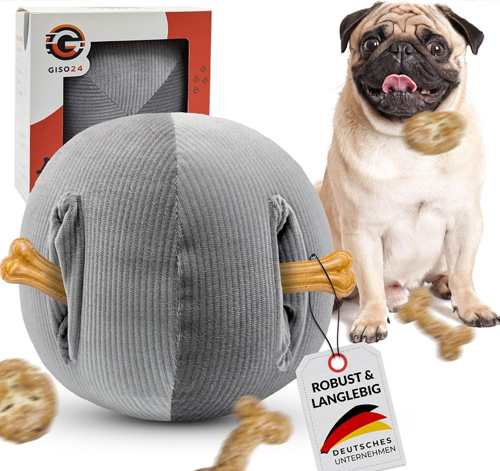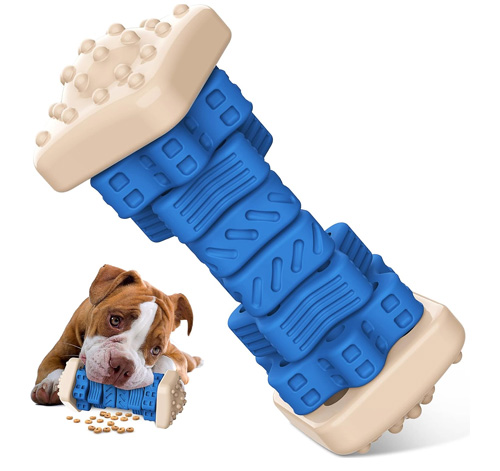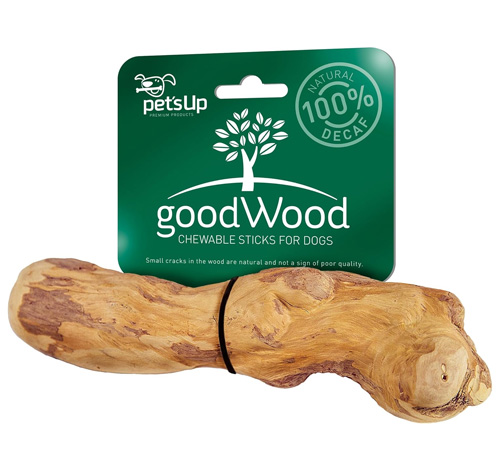French Bulldogs are known for their charming appearance and lovable temperament, but they often struggle with health problems, including allergies that can cause significant discomfort due to itching. Itching in French Bulldogs – Atopic dermatitis, a common condition in dogs, primarily affects breeds such as the French Bulldog and is characterized by persistent itching and skin irritation. Understanding and treating this condition is crucial for the well-being of your beloved pet.
For effective treatment of atopic dermatitis, it is not enough to just treat the symptoms, but a comprehensive approach is needed to identify the triggers, such as canine dermatitis or allergies, and external factors such as parasites. This article looks at various treatment options, including home remedies for itching in dogs and preventative measures that will keep your French Bulldog comfortable and happy.
Understanding itching in French Bulldogs
Itching in French Bulldogs can have a variety of causes, including food allergies, environmental allergens and parasites. These triggers can lead to symptoms that are not only uncomfortable but can also affect your pet’s overall health.

Common causes of itching
Food allergies
Itching in French Bulldogs – Food allergies are often manifested by symptoms such as excessive licking, chewing or scratching, especially on the paws. These reactions can also lead to gastrointestinal problems such as vomiting, diarrhea and excessive flatulence.
Buy Sensitive Frenchie dog food
Environmental allergies
Like humans, French Bulldogs can also suffer from environmental allergies. These can cause sneezing, coughing, wheezing and skin inflammation. Common allergens are pollen, house dust mites and mold.
Parasites
External parasites such as fleas, lice and mites are common causes of itching. These pests irritate the skin, causing scratching, redness and sometimes secondary skin infections.
Symptoms to be observed
- Excessive scratching, licking or biting of the skin
- Redness and hair loss
- Development of wounds or hot spots
- Unpleasant odor from the ears
- Frequent nibbling of paws and skin
- Shaking the head and wandering off
Case study: A 3 year old French Bulldog
One particular case involves a 3-year-old French Bulldog who has been struggling with severe itching for over two years. Symptoms include red bumps or pustules that cause discomfort and occasionally bleed. In particular, the itching intensifies at certain times of the year, indicating a possible allergy to pollen or grasses. Although we tried various dog foods and medications, the relief was only temporary.
Management suggestions
Dietary adjustments: Consider a raw food diet or eliminating potential allergens from your dog’s environment.
Professional advice: Join a bulldog-specific group or consult with a veterinary dermatologist to find customized treatment options.
By understanding the possible causes and recognizing the symptoms of itching in French Bulldogs, you can take proactive steps to alleviate the discomfort and improve your dog’s quality of life.

Common causes of itching in French Bulldogs
Skin diseases and allergies
Itching in French Bulldogs – French Bulldogs are prone to various skin conditions and allergies that can cause significant discomfort. Here are some common problems:
- Allergic dermatitis (allergic skin inflammation): This condition is triggered by environmental allergens such as pollen, house dust mites and molds. Symptoms include severe itching, which leads to scratching, biting and rubbing on the face, paws and stomach.
- Skin fold dermatitis (skin fold dermatitis): The deep skin folds of the French Bulldog can easily become infected if they are not cleaned regularly. This condition is characterized by red, moist patches in the skin folds, often accompanied by a foul odor.
- Pyoderma (bacterial skin infections): These infections can cause pustules that are itchy and sometimes painful. They often require antibiotic treatment prescribed by the vet.
- Demodex mites (demodectic mange): This disease caused by mites leads to hair loss, reddening of the skin and sometimes to secondary skin infections.
Food-related topics
- Food intolerance (food intolerance): Food intolerances can manifest themselves through gastrointestinal symptoms such as diarrhea and vomiting as well as dermatological symptoms such as redness and itching.
Eye and ear diseases
- Eye diseases: Conditions such as corneal ulcers, cherry eye and dry eyes can cause discomfort and itching in the eye area.
- Ear infection: Common in French Bulldogs due to their large ears. Symptoms include redness, discharge and frequent scratching or shaking of the head.
Buy sensitive dog food
Genetic and structural problems
- Atopic dermatitis: A chronic inflammatory disease that is often caused by genetic predisposition and environmental factors and leads to constant itching and skin problems.
- Conjunctivitis: This eye condition can lead to itching, redness and discharge and is often caused by infections or allergies.
- Problems with the spine and herniated discs: Conditions such as spinal problems and herniated discs can indirectly lead to discomfort and itching, as pain and discomfort affect the dog’s general well-being.
Itching in French Bulldogs – Diagnosis and treatment approaches
To diagnose these conditions, veterinarians may perform physical examinations, laboratory tests such as blood tests, skin scrapings, biopsies and tests for parasites. Early detection and treatment of these causes can significantly improve the quality of life of a French Bulldog suffering from itching.
Allergies and food intolerances
French Bulldogs, like many other breeds, are prone to allergies and food intolerances that can lead to discomfort and health problems. Knowing these factors can help you to better manage your pet’s symptoms.

Hypoallergenic diets and elimination diets
To identify the specific allergens in your French Bulldog, you can consider a hypoallergenic diet or an elimination diet. This involves removing common allergens from your dog’s diet and gradually reintroducing them to monitor for any adverse reactions. Common triggers include proteins such as chicken, beef and eggs.
Itching in French Bulldogs – diagnosis and treatment
Determining the exact cause of allergies can be difficult. Although blood and skin tests are available, their reliability can vary. An elimination diet often provides the most direct evidence of food hypersensitivity. For environmental allergies, treatment may include anti-inflammatory medications, antihistamines or even allergen-specific immunotherapy tailored to reduce sensitivity to specific allergens.
Day-to-day management
To control your French Bulldog’s exposure to allergens, you need to groom them regularly and keep their environment clean. Feeding high quality dog food with few ingredients can also prevent food allergies. For environmental allergies, regular bathing and cleaning the home can minimize allergy flare-ups.
Recognizing symptoms
The symptoms of allergies in French Bulldogs can range from skin irritations such as itching and redness to gastrointestinal symptoms such as vomiting and diarrhea. Chronic ear infections can also indicate an underlying allergy.
Long-term health aspects
Allergies can lead to more serious conditions if they are not treated properly. For example, persistent food allergies can cause inflammatory bowel disease (IBD), which can severely affect your dog’s health. Regular check-ups with your vet can help manage and prevent these complications.
By understanding and treating these allergies and food intolerances, you can help your French Bulldog live a healthier and more enjoyable life.
Parasites and external influences
Parasites and external factors contribute significantly to the discomfort French Bulldogs experience due to itching. A variety of parasites such as fleas, ticks, mites and lice, as well as environmental allergens, play a crucial role in the development of skin irritation and allergic reactions in these dogs. Understanding these factors can help to effectively treat and prevent the conditions they cause.
Common parasites that affect French Bulldogs
Fleas: These small, wingless insects are notorious for their intense itching. They feed on the blood of their hosts and are easily transmitted through contact with other infested animals or the environment.
Ticks: Ticks not only cause itching, but are also carriers of various diseases. They attach themselves to the dog’s skin, feed on blood and can transmit diseases that can have serious health consequences.
Demodex mites: These mites, which are usually transmitted from the mother to the puppies, live in the hair follicles and usually cause no symptoms unless the dog is immunocompromised, which leads to chronic skin inflammation.
Lice: Dog-specific lice can lead to severe itching, inflamed skin, crusting and hair loss. In puppies, a heavy infestation can even lead to anemia.
Buy interactive Frenchie toys
Sarcoptes mites (scabies): These mites burrow into the skin, cause severe itching and are highly contagious among dogs. They cause discomfort and can be transmitted to humans, although they do not cause any symptoms in humans.
Ear mites: These mites, which are more common in cats but also affect dogs, cause irritation in the ears. They can usually be treated with localized therapies.
Grass mites: These mites infest areas such as between the toes, the legs, the stomach, the chest and the neck and cause irritation and discomfort, especially in the warmer months.
Cheyletiella mites: These mites live on the surface of the skin and feed on tissue fluids. They are usually transmitted from one dog to another and cause dandruff and itching.

Dealing with environmental allergens
Environmental allergens such as pollen, house dust mites and molds are also triggers of atopic dermatitis. They lead to symptoms such as itchy skin, redness and inflammation, which particularly affect areas such as the abdomen, armpits and ears. Allergy tests using intradermal skin tests or blood tests can help to identify specific allergens and thus develop targeted treatment strategies.
Dealing with parasites and allergens
Itching in French Bulldogs – Regular grooming and a clean living environment are crucial to control exposure to parasites and allergens. Treatments include flea and tick repellents, regular baths, and in severe cases, possibly medication prescribed by your veterinarian. In addition, keeping the home environment clean by frequent vacuuming and washing bedding can reduce the presence of allergens and parasites.
By understanding the various parasites and external factors that can cause itching in French Bulldogs, you can take proactive steps to reduce their impact and ensure your pet stays comfortable and healthy.
Treatment options and home remedies
Recognizing and managing treatment options
Various treatment options are available to treat itching and skin problems in French Bulldogs that are due to atopic dermatitis or other skin conditions. The choice of treatment depends largely on the underlying cause.
- Flea control: For problems such as flea infestations, your vet may suggest using topical or oral flea treatments to get rid of these pests.
- Medicinal products: Products such as medicated shampoos, topical creams and sprays can soothe and heal the skin. Antihistamines and corticosteroids may be prescribed to reduce inflammation and allergic reactions.
- Dietary management: Switching to a hypoallergenic food or diet can significantly improve your dog’s health by reducing exposure to potential allergens.
- Prevention against parasites: Regular use of flea and tick repellents is crucial, even in areas that are not considered high risk areas. Regular worming every three months is also recommended to prevent parasite infestation.
- Veterinary medicines: Antibiotics may be required for bacterial infections. For chronic conditions such as atopic dermatitis, treatments such as Apoquel or Cytopoint may be prescribed to control symptoms. Be sure to ask your veterinarian for help.
Buy Frenchie chew toy
Itching in French Bulldogs – home remedies for immediate relief
Home remedies can temporarily relieve symptoms and are a gentle way to ease your French Bulldog’s discomfort:
- Oatmeal baths: A simple oatmeal bath can soothe inflamed skin and relieve itching.
- Natural oils and aloe vera: Applying coconut oil or aloe vera directly to the affected areas can moisturize the skin and provide relief.
- Herbal rinses: Chamomile or calendula tea can be used as a rinse or compress to soothe irritated skin.
- Cold compresses: Applying cold tea, camomile or curd compresses can cool down hot spots and reduce the urge to scratch.

Specialized nutritional supplements
A tailored nutritional approach can also play a decisive role in the treatment of skin diseases:
- Personalized dog food: Companies like Futalis offer personalized dog food plans that take into account the specific nutritional needs and sensitivities of your French Bulldog, ensuring a balanced diet that supports skin, coat, joint and overall health.
- Regular check-ups: Regular veterinary check-ups can help adjust your dog’s diet and treatment plan as needed to ensure optimal management of his condition.
- By combining these treatment options and home remedies with regular veterinary care, you can effectively treat your French Bulldog’s skin conditions, improve his quality of life, and ensure that he stays happy and healthy.
Itching in French Bulldogs – Preventive Measures
Regular grooming is key to preventing skin allergies in French Bulldogs. Consistent grooming will help keep your pet’s coat and skin clean, reducing the buildup of allergens that can cause irritation.
Flea and tick prevention
Flea and tick prevention should be a cornerstone of your pet care routine. Regular use of preventative treatments can protect your French Bulldog from the inconveniences and health risks associated with these parasites.
Regular veterinary check-ups
Regular veterinary check-ups are crucial. These visits allow early detection and treatment of possible causes of itching and ensure that your pet remains healthy and comfortable.
Control of the environment
Minimizing your dog’s exposure to known allergens can significantly reduce the risk of itching. This may mean cleaning your home regularly, using hypoallergenic bedding or installing air purifiers to reduce allergens in the air.
Nutrition and diet
Feeding your French Bulldog a high-quality diet that avoids common allergens can play a crucial role in maintaining healthy skin. Seek advice from a veterinarian to find a diet tailored to your pet’s specific needs.
Buy interactive Frenchie toys
Stress reduction
Using stress reduction techniques can also benefit your dog. Stress can exacerbate skin problems, so it is important to create a calm and stable environment.
Cleansing the skin folds
The skin folds of French Bulldogs often require special care. Regular cleaning can prevent infections and irritations that lead to discomfort.
Allergen avoidance and immunotherapy
For dogs with specific allergies, it is important to avoid allergens. In some cases, the vet may recommend immunotherapy to control the reactions.
Exercise and weight control
Regular exercise and maintaining a healthy weight are beneficial for overall skin health. This can reduce the risk of skin problems associated with obesity.
Comprehensive veterinary care
Continuous veterinary care is essential for the treatment and prevention of skin diseases. Regular check-ups support early detection and effective treatment.
Adaptation of lifestyle and environment
A clean, chemical-free environment and avoidance of contact allergens are important preventative measures. Also consider the potential for zoonotic diseases, which can be contained by regular deworming and hygiene measures.
By incorporating these preventative measures into your routine, you can help keep your French Bulldog healthy, comfortable and free from excessive itching.
Itching in French Bulldogs – Conclusion
Research into the treatment of itching in French Bulldogs has shown that accurate diagnosis of the causes – be it atopic dermatitis, environmental allergens or parasites – is key to alleviating and improving the quality of life of our beloved pets. Identifying specific triggers, whether dietary, genetic or external, allows for tailored treatment strategies, from hypoallergenic diets to specialized veterinary care, underscoring the importance of a comprehensive approach. Regular grooming, preventative measures against parasites and a clean environment all play a role in combating the unpleasant itchiness that should not be underestimated.
Given the complexity of caring for French Bulldogs, it is clear that a proactive attitude, underlined by regular veterinary examinations and a willingness to adapt treatment when necessary, is crucial. The significance of our findings goes beyond mere symptom management and shows a way to improve the overall wellbeing of our pets. Further research and innovation in the areas of veterinary care, nutrition and environmental management promise even greater progress in ensuring a comfortable, happy life for French Bulldogs suffering from atopic dermatitis and other causes of itchiness.
FAQs
How can I relieve my French Bulldog’s itchy skin?
To control and soothe your French Bulldog’s chronic itching, bathe them with an organic, sulfate-free and hypoallergenic shampoo. Look for shampoos that contain additional anti-inflammatory ingredients such as hydrocortisone and aloe vera, as these can soothe red, inflamed and itchy skin.
What remedies can stop itching in dogs?
Applying cold black tea, chamomile extract or curd cheese in the form of compresses can soothe irritated, itchy skin. Calendula ointment and aloe vera also have a soothing effect. A vet should always be consulted before using home remedies.
What should you do for a dog with atopic dermatitis?
Talk to your vet about administering liquid Ciclosporin so that both you and your dog are satisfied. With the help of your vet and treatment with liquid Ciclosporin, it is possible to alleviate the symptoms of your dog’s atopic dermatitis.
What home remedies can I give my dog for itching?
Various home remedies can be helpful for dogs suffering from itching, including coconut oil for dry and damaged skin, aloe vera for dry skin, calendula ointment, fennel seeds and chamomile tea, curd, apple cider vinegar and pure soap.
The information in this blog post is in no way a substitute for a visit to your trusted vet; your vet can help you at any stage of the symptoms and suggest a suitable treatment.













